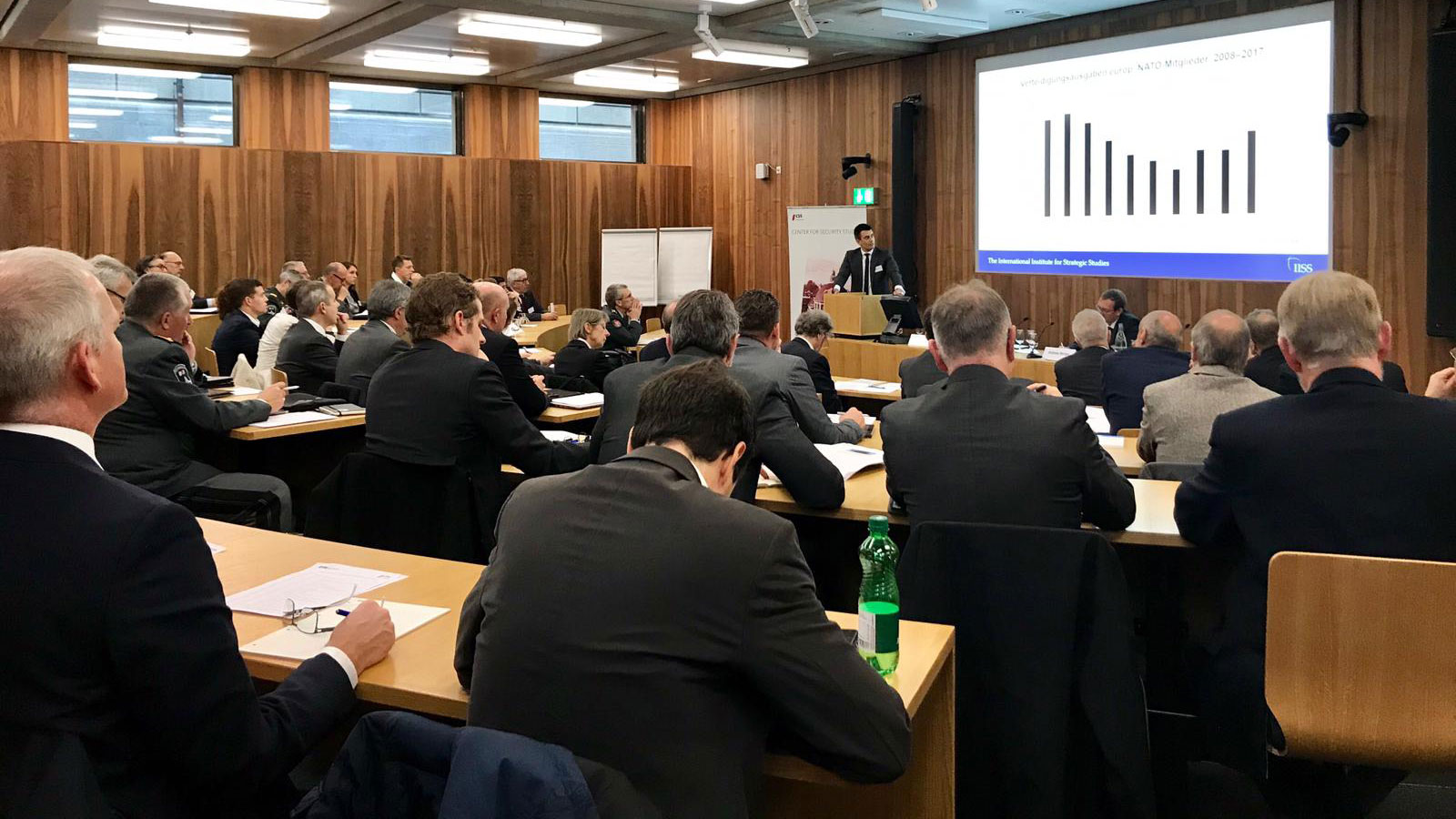ETH Workshop: “Arms Procurement in Europe: Current Trends and Implications for Switzerland"
On 16 November 2018, the CSS held a conference on “Arms Procurement in Europe: Current Trends and Implications for Switzerland.” In three panels, the participants discussed the procurement of major military systems, key technologies and industrial policy, and the upcoming arms procurements in Switzerland.

The 32nd ETH workshop on Swiss Security Policy addressed current trends in European armaments policies and their implications for Switzerland. European policy makers have to address the challenge of modernizing ageing main weapons systems and acquiring future-proof high technology capabilities while fiscal possibilities are limited and political support is often uncertain. The means through which states are trying to overcome this challenge are thus of great interest to Switzerland. Workshop participants from the federal administration, academia, industry and civil society discussed these topics and more in depth.
An introductory keynote speech clearly spelled out the different challenges policy makers face nationally as well as with regard to European cooperation and global markets, highlighting the strong interrelation between these three areas. The speech put a particular emphasis on the largely unfulfilled potential for cooperation in Europe and on the increasing role of Chinese arms companies, whose global presence is likely to grow in coming years.
Small European States and the Procurement of Major Military Systems
Afterwards, the first panel of the day reflected on the substantial restrictions small European states have to cope with when acquiring major military systems. In that regard, the case of Switzerland’s force planning illustrated how the replacement of such systems can be managed in the context of extended requirements for the armed forces. While detailed, long-term planning is key in this respect, projects of that scale leave little room for maneuver in both Switzerland and other small states.
Furthermore, the panel discussed Austria’s armament policies and their related challenges. Important lessons from the Austrian case included the positive effect of integrating views from the troops early on in the procurement process, the courage to acquire off-the-shelf goods, and the need to increase transparency. The panelists also reflected on the possibility of small states working together in “purchasing groups,” whilst acknowledging that a number of political and administrative obstacles would have to be overcome in order for these groups to emerge. In addition, the panel particularly emphasized the central importance of a solid political consensus for upcoming armament procurements.
An analysis of Finland’s recent armament policies showed how a small state can successfully initiate two large procurement projects at the same time. The panel attributed this to Finland’s geostrategic environment, high political support for the long-term planning process, and the country’s very distinct culture of consent. The Finnish model of industrial participation, which is strongly orientated towards criteria of national security, also gained considerable interest.
Arms Procurement, Key Technologies and Industrial Policy
In the second panel, participants turned to the debate on the definition of key technologies and industrial policy. An introductory presentation outlined the possibilities and limitations of cooperation on a European level, showing once more that national interests and exceptionalities not only directly impact the decision-making process, but also lead to different outcomes. The panelists also discussed future issues in the field of artificial intelligence and cyber security.
The following presentations used Switzerland and Germany as examples to underline the need to define a set of key technologies, which are to be given special consideration in the context of a country’s national industrial base. The German initiatives in this area had a clear trend setting function. At the same time, however, it was precisely the small scale of Switzerland’s industrial base and the manageability of its administrative apparatus that were considered to be conducive to the implementation of a far-sighted approach to security-relevant technologies.
The last presentation of the panel dissected important trends in European industrial policy by taking a closer look at the Italian case. The use of European cooperation frameworks to favor one’s own companies, the extensive support of national armament companies by the Ministry of Economic Development and the great importance of creating jobs and economic growth in peripheral regions were particularly emphasized.
Upcoming Arms Procurements in Switzerland
The last panel put the conclusions of the day into the context of Switzerland’s upcoming large-scale acquisitions. The main points of discussion were the lack of a clear political consensus in Switzerland as well as the crucial role of the media. The lively debate at the end of the 32nd ETH Workshop was ample proof that there is clearly more demand for further events and publications on the topic.
Further CSS Publications on the topic
- The Transformation of European Armaments Policies, CSS Analyses in Security Policy Nr. 234 (2018)
- Artificial Intelligence: China’s High-Tech Ambitions, CSS Analyses in Security Policy Nr. 220 (2018)
- Grundlagen und Prozesse der Rüstungsbeschaffung. Ausgewählte europäische Staaten im Vergleich, CSS Bericht (2018)
- Arms Procurement (1): The Political-Military Framework, CSS Analyses in Security Policy Nr. 181 (2015)
- Arms Procurement (2): Project Dynamics, CSS Analyses in Security Policy Nr. 182 (2015)
- Lethal Autonomous Weapons Systems: Future Challenges, CSS Analyses in Security Policy Nr. 164 (2014)